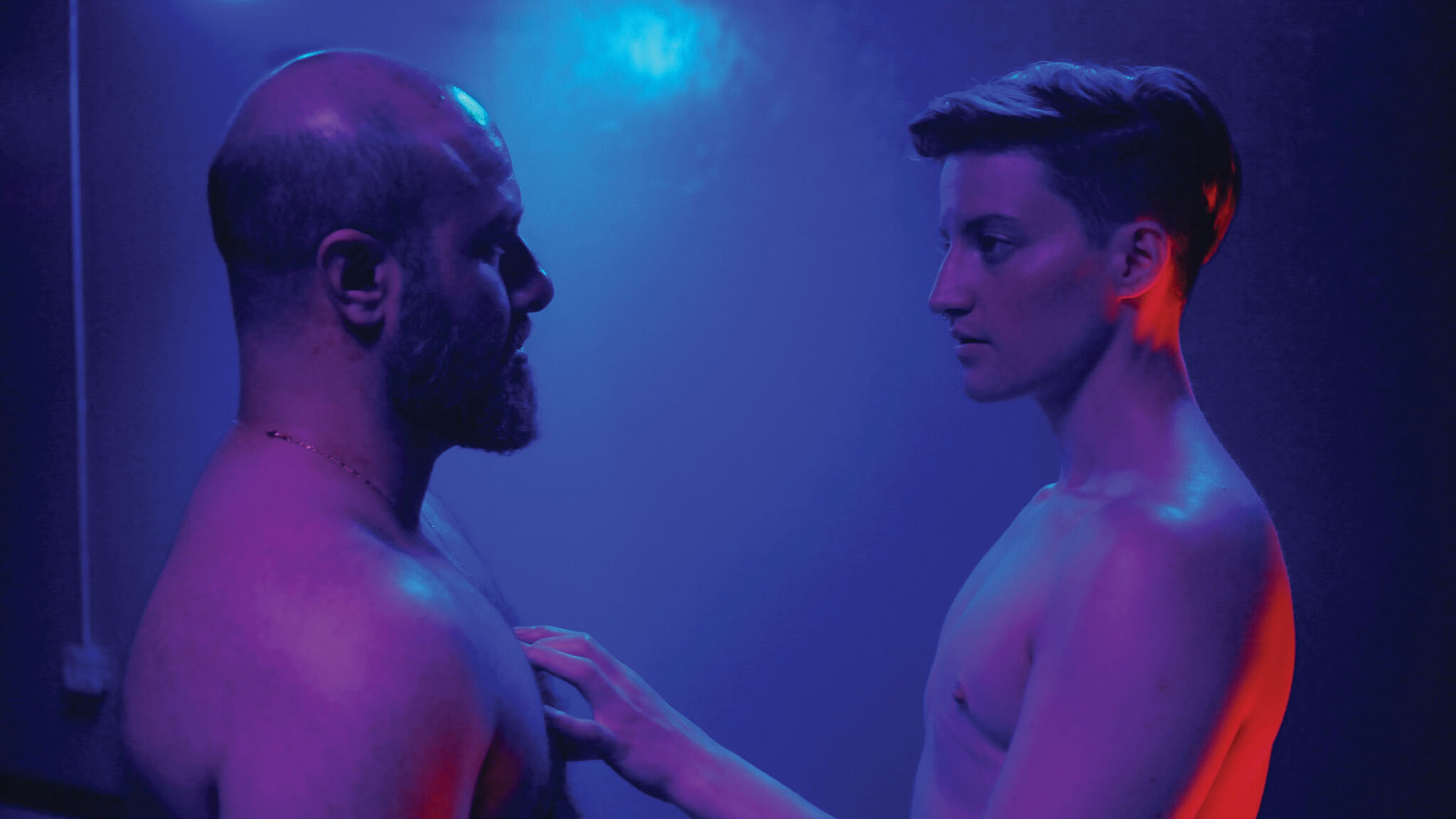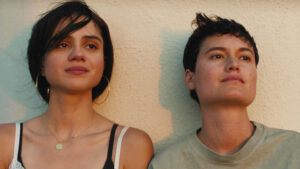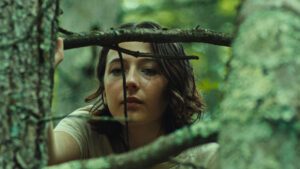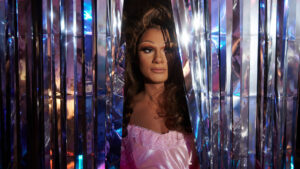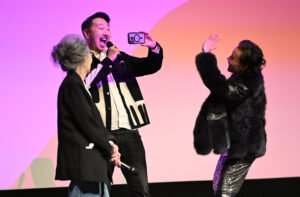By Lucy Spicer
One of the most exciting things about the Sundance Film Festival is having a front-row seat for the bright future of independent filmmaking. While we can learn a lot about the filmmakers from the 2024 Sundance Film Festival through the art that these storytellers share with us, there’s always more we can learn about them as people. This year, we decided to get to the bottom of those artistic wells with our ongoing series: Give Me the Backstory!
The NEXT category of the Sundance Film Festival is known for showcasing bold, innovative films that defy genre and form and encourage us to expand our definition of cinema. Part documentary, part fictional storyline, Desire Lines was a natural choice for NEXT, taking the topic of transmasculine sexuality and refusing to confine it to a “straight” narrative.
Director Jules Rosskam’s unique film — which won the NEXT Special Jury Award at the 2024 Festival — was inspired by an individual whom history has heavily overlooked despite his immeasurable influence within the trans community. “Lou Sullivan, the first known gay FTM AIDS activist, who made my existence and so many others like mine possible,” explains Rosskam. “He was unrelenting in his quest to be exactly who he was regardless of how many times people in the medical and psychiatric community told him it wasn’t possible.”
Desire Lines honors Sullivan’s legacy by shining a light on his work as well as providing a platform for other trans men to speak about their varied experiences and how they have navigated the spectrum of sexuality. “None of it would have been made without the incredibly generous interviewees,” says Rosskam. “It takes a lot to show up to an open-ended process, to open yourself up to a (sometimes) virtual stranger, to trust that what you are revealing about yourself will be used to make something you feel good about. That takes a kind of trust that I am deeply inspired by.”
Read on to learn more about Desire Lines and its director, including Rosskam’s favorite part of making the film and his advice to filmmakers at the beginning of their artistic journey.
Describe who you want this film to reach.
My goal is always to reach other trans people first. While there has been an explosion of trans representation over the last decade, transmasculine people in particular have remained underrepresented. Because of that, it feels important to prioritize my communities. Beyond that, I am delighted for everyone else who can find a way into the work — and I think there are many avenues in — to be at the table, so to speak. The history explored in the film will be illuminating for everyone. Lou Sullivan was such an important historical figure that very few people have heard of. I hope this film helps to push his legacy forward.
Why does this story need to be told now?
This story needed to be told 20 years ago when I first started dreaming it up. Transgender men are just starting to get their time on screen, but so often it is still through a cisgender lens. Which is, in part, to say that the story often seems to be that “trans people are just like you” and therefore deserving of our humanity.
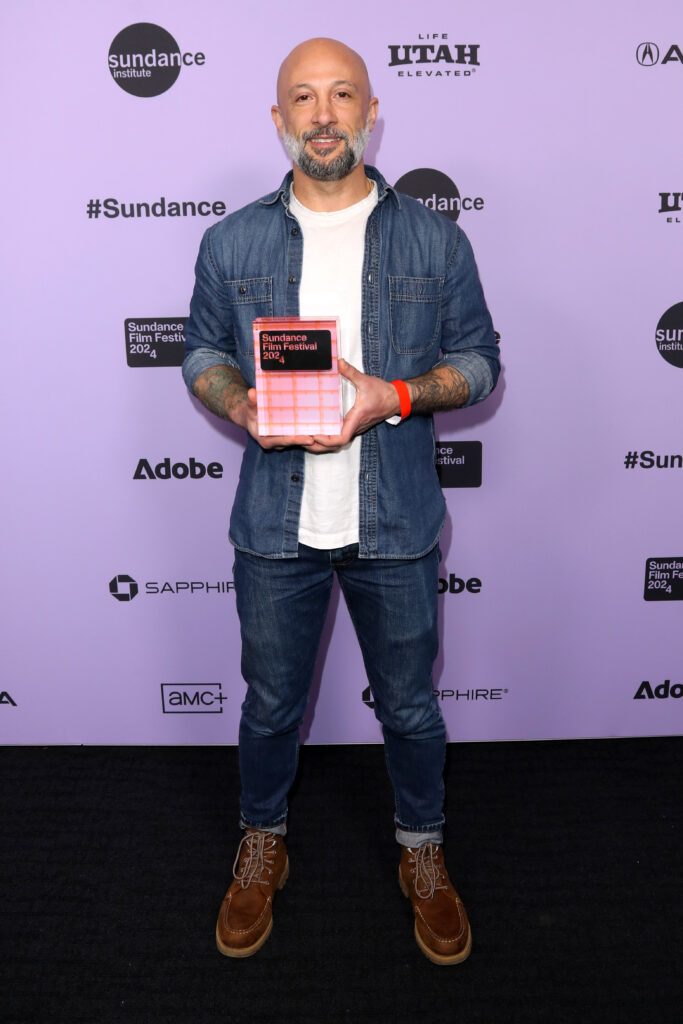
This narrative is damaging because it often requires us to section off parts of ourselves because it doesn’t feel safe, or possible, to actually express our full experiences. This story also needs to be told because transgender men are experiencing rising HIV infection rates, which is in part due to our erasure from gay male narratives and histories.
How do you want people to feel after they see Desire Lines?
I hope people feel equally like they learned something they didn’t know and that they saw a new kind of film. I hope they will feel permission to laugh (it’s funny!), cry, and to be curious. I make films in order to learn about the world around me — even when that world is related to my own experience — and I try to take the audience on that journey with me.
Your favorite part of making the film? Memories from the process?
This is so hard to answer! I always love the editing process; it’s where my films always come together. Before I get into the edit, I don’t totally know what I’m making. I also had such an amazing experience filming the narrative parts of the film. That was in large part due to the unbelievable crew we had, not to mention our wonderful cast. Most of our cast and crew were from LGBTQIA+ communities, and that was such a moving thing to behold.
Films are lasting artistic legacies; what do you want yours to say?
I hope the legacy of this film is that bodies and spaces hold complex histories and we should expect our cinema to be as nuanced, capacious, and radically specific as we are.
What is something that all filmmakers should keep in mind in order to become better cinematic storytellers?
Stop making films that look and sound just like every other film out there. Think about what drives the choices you make and remember that how you tell the story visually is equally as important as the story itself. In fact, the two co-constitute one another.
If you weren’t a filmmaker, what would you be doing?
Well, other than being a filmmaker I have been a university professor for the past 15 years. So, that is generally what I’m doing when not making films. Occasionally they happen at the same time. If I was doing something totally different, I’d open a restaurant.
What three things do you always have in your refrigerator?
Silk soy creamer, hummus, arugula
What was the last book you read?
The last book I read was A Third University Is Possible by la paperson.
One thing people don’t know about me is _______.
I was a judo champion at age 10.
Who was the first person you told when you learned you got into the Sundance Film Festival?
My partner, who screamed and cried for 20 minutes straight. It was exactly what I needed.




